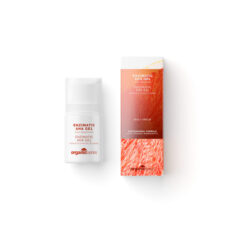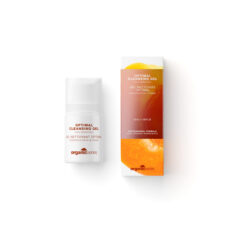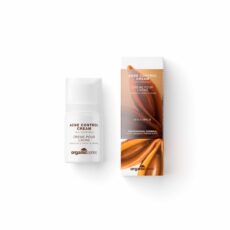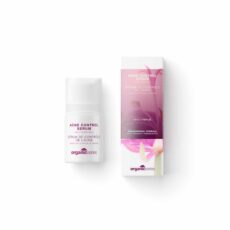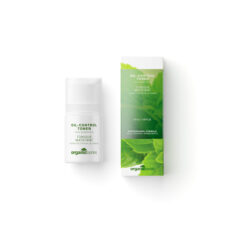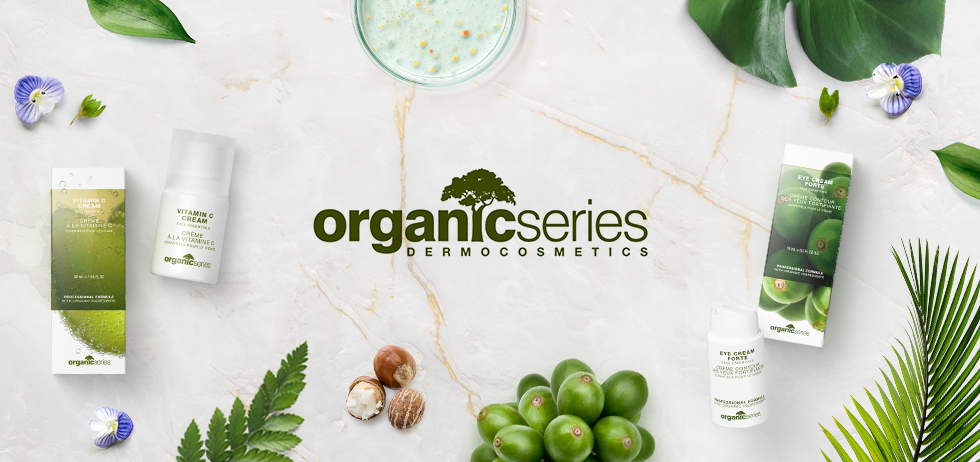Find the Best Acne Cream UK in 8 Easy Steps – Introduction
In the quest for flawless skin, finding the right acne cream UK is crucial. Acne is a common skin concern that affects people of all ages, and the UK market offers a plethora of options to tackle this issue. However, navigating through the sea of products can be overwhelming. That’s why we’ve prepared this comprehensive guide to help you find the best acne cream UK in eight easy steps.
Step 1: Identify Your Skin Type
Before you embark on your acne cream journey, it’s essential to understand your skin type. The effectiveness of acne creams can vary depending on whether you have oily, dry, sensitive, or combination skin. Identifying your skin type will help you choose a product that caters to your specific needs.
If you have oily skin, you’ll want an acne cream UK that controls excess oil production. On the other hand, if your skin is dry, you’ll need a product that moisturizes while treating acne to prevent excessive dryness and flakiness. For those with sensitive skin, it’s crucial to find a gentle formula that won’t cause irritation.
Understanding your skin type will also guide you in establishing a suitable skincare routine to complement your acne cream. For example, if you have oily skin, you may need a lightweight moisturizer, whereas those with dry skin may require a richer, hydrating product.
Step 2: Determine Your Acne Type

Not all acne is the same. There are various types, including blackheads, whiteheads, pustules, papules, cysts, and nodules. Each type requires a different approach when it comes to treatment. Understanding the type of acne you’re dealing with will guide you towards the most suitable acne cream.
Blackheads and whiteheads, known as comedonal acne, are often caused by clogged hair follicles. Look for acne creams that contain ingredients like salicylic acid or benzoyl peroxide, which are effective at clearing these types of blemishes.
Pustules and papules are inflammatory acne lesions that appear as red bumps. For these, you may want an acne cream with anti-inflammatory properties such as niacinamide or sulfur.
Cysts and nodules are deep, painful acne lesions that often require more intensive treatment. In these cases, it’s crucial to consult a dermatologist who may recommend prescription-strength acne creams or other treatments like oral medications.
Step 3: Consult a Dermatologist
For severe or persistent acne issues, it’s advisable to seek professional advice. Dermatologists can assess your skin condition, identify any underlying causes, and recommend suitable treatments, which may include prescription-strength acne creams.
Dermatologists can also help you determine whether your acne is related to hormonal imbalances, dietary factors, or other underlying conditions. They may recommend hormonal treatments or lifestyle changes in addition to topical acne creams.
A dermatologist’s expertise can be invaluable in crafting a personalized acne treatment plan that addresses your unique needs and concerns. They can also monitor your progress over time to ensure that the chosen acne cream is delivering the desired results.
Step 4: Research Ingredients
To make an informed choice, familiarize yourself with common ingredients found in acne creams. Ingredients like salicylic acid, benzoyl peroxide, glycolic acid, and niacinamide have proven acne-fighting properties.
Salicylic acid is a beta hydroxy acid that penetrates the pores, exfoliates dead skin cells, and helps unclog them. It’s particularly effective for treating blackheads and whiteheads.
Benzoyl peroxide works by killing acne-causing bacteria and reducing inflammation. It’s available in different strengths and formulations, so choose one that suits your skin’s sensitivity.
Glycolic acid is an alpha hydroxy acid that exfoliates the skin’s surface, promoting cell turnover and preventing clogged pores. It’s beneficial for treating mild to moderate acne and improving overall skin texture.
Niacinamide, a form of vitamin B3, has anti-inflammatory properties and helps regulate sebum production. It’s a gentle option suitable for various skin types.
Beyond these key ingredients, some acne creams UK contain additional beneficial components like hyaluronic acid for hydration, tea tree oil for its antimicrobial properties, or natural extracts like aloe vera for soothing irritated skin. When researching products, pay attention to the ingredient list to ensure they align with your skin’s needs and sensitivities.
Step 5: Read Product Reviews
One of the advantages of living in the digital age is the wealth of information available at your fingertips. Take advantage of online resources and read product reviews from other consumers who have used acne creams UK. Their experiences can offer valuable insights into product effectiveness and potential side effects.
Look for reviews on trusted skincare websites, forums, and social media platforms. Take note of individuals who share similar skin concerns and goals as you, as their feedback may be more relevant to your situation.
Keep in mind that while reviews can be informative, everyone’s skin is unique. What works for one person may not work for another. Be open to trying different products and consulting a dermatologist if you encounter challenges in finding the right acne cream.
Step 6: Consider Brand Reputation
A brand’s reputation can speak volumes about the quality of its products. Research well-established skincare brands known for their commitment to producing effective and safe acne treatments. Look for brands with a history of dermatologist recommendations, clinical testing, and a strong presence in the skincare industry.
Reputable brands often invest in research and development to continuously improve their products. They also prioritize transparency by providing clear ingredient lists and detailed product information.
Additionally, consider brands that offer a range of skincare products beyond just acne creams. Having a holistic approach to skincare can be beneficial, as you may need complementary products like cleansers, toners, and moisturizers to achieve the best results.
Step 7: Check for Allergens and Irritants
Before purchasing an acne cream, carefully examine the product label for any potential allergens or irritants that may aggravate your skin condition. It’s crucial to choose a product that is compatible with your skin type and sensitivities.
Common irritants to watch out for include fragrances, alcohol, and certain preservatives. If you have sensitive skin, it’s advisable to opt for fragrance-free and hypoallergenic products to minimize the risk of adverse reactions.
Another consideration is whether the acne cream contains any ingredients that you are known to be allergic to or have reacted poorly to in the past. Always conduct a patch test before using a new product on your entire face to ensure it doesn’t cause irritation.
Step 8: Patch Test and Monitor
Once you’ve selected an acne cream, perform a patch test on a small area of your skin to ensure you don’t have any adverse reactions. Choose a discreet area, such as the inside of your wrist or the side of your neck, and apply a small amount of the product. Wait 24 to 48 hours to see if any redness, itching, or discomfort occurs.
If the patch test goes well and you experience no adverse reactions, start using the product as directed on your face or affected areas. It’s essential to follow the recommended usage instructions to maximize the acne cream’s benefits and minimize the risk of overuse or misuse.
As you begin using the acne cream UK, keep a skincare journal to track your progress. Note any changes in your skin, both positive and negative. Be patient, as it can take several weeks to see noticeable improvements in your acne.
Remember that skincare is not one-size-fits-all, and what works for one person may not work for another. If you don’t see the desired results after a reasonable period, consider revisiting your skincare routine or consulting a dermatologist for further guidance.
Conclusion
Finding the best acne cream UK doesn’t have to be a daunting task. By following these eight easy steps, you can make an informed choice that aligns with your skin type, acne type, and individual preferences. Remember that achieving clear and healthy skin is a journey, and consistency in your skincare routine is key. With the right acne cream and a little patience, you’ll be on your way to smoother, blemish-free skin in no time.
In your quest to find the ideal acne cream UK, it’s important to prioritize your skin’s unique needs, seek professional guidance when necessary, and stay informed about the latest developments in skincare. Armed with knowledge and a tailored approach, you can confidently tackle acne and put your best face forward.
By following these steps, you can effectively choose the best acne cream UK that suits your specific needs and embark on a journey towards clearer, healthier skin. Remember that patience and consistency are key in achieving long-term results.
Expert recommendation
Organic Seres Acne Cream UK
Our Organic Acne Cream UK contains shikimic acid which directly affects the composition of sebum and has an antibacterial and antifungal effect. It will effectively inhibit the development of Propionibacterium Acnes, the bacteria responsible for acne changes. It will regenerate the skin from photodamages and discolorations, leaving it luminously smooth. Azeloglycine will significantly reduce oily skin and regulate the sebaceous glands. It will reduce TEWL (transepidermal water loss) and give the skin excellent moisture and remain silky smooth. Our Organic Acne Cream UK has just the ideal amount of oils and will never weigh your skin down not cause any unwanted oiliness.
Benefits
- Antibacterial and antifungal.
- Inhibits microbial growth.
- Regenerates the skin.
- Leaves the skin silky smooth.
- Reduces skin oiliness.
- Regulates sebum production.
- Moisturises and smoothens the skin.
How to use
Wash your skin, you can use our Optimal Cleansing Cleanser. Apply a thin layer of Organic Acne Cream and gently massage it into the skin until fully absorbed. The cream can be used as a finishing touch to the Organic Acne treatment.Active ingredients
- Azeoglycine – has an antibacterial effect, inhibits the thyroxine enzyme. Regulates sebaceous glands, normalises sebum secretion and strongly moisturises.
- Shakikian Acid – has an exfoliating, antibacterial and antifungal effect. Unblocks plugged sebaceous gland outlets, inhibits the development of Propionibacterium Acnes.
- Green Tea Extract – has antibacterial, antiviral, anti-inflammatory and anti-aging properties. Reduces the formation of erythema, relieves inflammation, tones and eliminates the burning sensation.
- Chia Seed Oil – makes skin flexible, strongly moisturises by reducing transepidermal water loss. Has antioxidant, anti-inflammatory and protective properties.
- Powdered oat – soothes, brings immediate relief to irritated and reddened skin.
- Bisabolol – soothes, has an anti-inflammatory and antibacterial effect. Accelerates the healing process, inhibits excessive growth of the epidermis and sebaceous glands. Reduces the effect of pro-inflammatory cytokines.
- Lavender oil – strongly disinfects, has antiseptic, anti-inflammatory, antifungal, anti-acne properties. Regulates sebum production, prevents scarring, stimulates new cell growth.
Ingredients
Hazards and Cautions
Store in a dry, dark and cool place. Keep out of reach of childrenMore inspiration
Follow Organic Series UK on instagram and facebookFrequently asked questions
Why is organic face cream better? – Using organic face creams over regular face creams is not only much better for the environment, it’s also more beneficial for your skin. With organic face creams you can be sure that the ingredients are of the highest quality possible and the powerful plant extracts don’t contain any pesticides and harmful residues. With Organic Series face creams you can be sure that they’ve been designed and developed by top-notch specialists to match the needs of even the most demanding dermatologists and cosmetologists. On the other hand, nonorganic face creams often contain synthetic ingredients that don’t benefit your skin health. While they might give you an initial wow feeling of very smooth skin surface – it’s all superficial, it’s most often just a silicone layer on your skin. Meanwhile, professional organic face creams penetrate the skin layers and actually work to restore your skin health and glow from the inside. Using organic face creams is taking the best care of your body – inside and out, not just on the surface. It’s especially important when it comes to an acne cream – choosing an Organic Acne Cream UK means all the benefits for you and for the environment. Can you put acne cream over moisturiser? – You should use acne cream before moisturiser – this way all the acne fighting ingredients get to penetrate the skin better. When using our Organic Acne Cream you might never even have to use additional moisturisers because our Organic Acne Cream UK has excellent hydrating properties! How to use acne cream? – Apply a thin layer of Acne Cream UK on a thoroughly cleansed skin and gently massage it into the skin until fully absorbed. Our organic acne cream can be used as a finishing touch to the Organic Acne treatment. What cream helps acne? What cream to use for acne? – If you’re looking for the best acne cream, look no further – our Organic Acne Cream UK contains shikimic acid which directly affects the composition of sebum and has strong antibacterial and antifungal effect. It also contains Azeloglycine which significantly reduces skin oiliness and regulates the sebaceous glands – shrinks pores. Can face cream cause acne? – It’s incredibly important to know your skin type and choose the proper cream for your face, because ill-chosen face cream can cause acne. For oily and acne-prone skin you should avoid oily and heavy creams – opt for a lightweight cream with ingredients targeting acne and oiliness, for example our Organic Acne Cream UK at Organic Series.
More inspiration
Follow Organic Series UK on instagram and facebook for more inspiration, expert tips and special discount codes!Acne Cream UK By Organic Series
-
-
-
Organic Acne Cream | Acne Control Cream By Organic Series | 15ml, 50ml, 200ml
From £ 12.00Rated 4.75 out of 504 reviews -
Organic Acne Serum | Acne Control Serum By Organic Series | 15ml, 50ml, 200ml
From £ 12.00Rated 4.75 out of 504 reviews -
Toner for Oily Skin | Oil-Control Toner By Organic Series | 50ml, 200ml
From £ 24.00Rated 5.00 out of 501 review
Maria
All Author Posts

